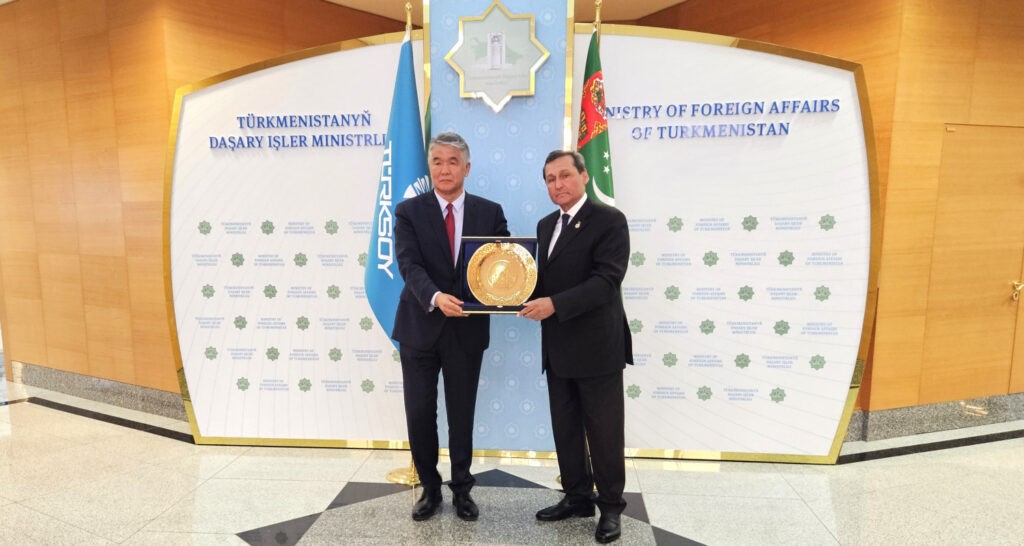The giant bronze statue of a robed man holding a book stands on the southern outskirts of Turkmenistan’s capital, Ashgabat, and is visible from many parts of the city. Including the granite base, it is more than 80 meters high. The sculptor says the rising sun illuminates the structure at dawn, giving it a hallowed aura. Diplomats and other dignitaries recently assembled for the inauguration of the statue of Magtymguly Pyragy, a revered poet and philosopher who serves today as a state-sponsored symbol of national and cultural identity. Some carried bouquets of flowers as they walked up the steps toward the looming monolith. Later, there were fireworks, a multi-colored light show and a drone display in the sky that formed the image of a quill pen. Led by President Serdar Berdimuhamedov, the ceremony on May 17 marked the 300th anniversary of the official birthday of Pyragy, who is little known outside Central Asia but is vital to a campaign of national cohesion in a country whose brand of personalized state control often seems opaque and eccentric to observers. Pyragy was born in the 18th century in what is today Iran, and is associated with Sufi spiritualism. He wrote about love, family and morality, and also laced his poetry with yearning for Turkmen solidarity at a time of conflict and fragmentation. Today, his image adorns postage stamps and banknotes in Turkmenistan. A theater carries his name. A symphony. A street. A university. People put his verse to songs at festivals. His lines form aphorisms in Turkmen, a Turkic language spoken in parts of Central Asia. Turkmenistan is of interest to foreign powers for its deep energy reserves, but this year its diplomats made an intense push in world capitals to get people interested in something else about the country: Magtymguly Pyragy. They promoted events about the poet in cities including Washington, Paris, Beijing and Seoul. The message was, as the state news agency put it, that Pyragy´s work is “an invaluable asset of all mankind.” Indeed, the park where the giant Pyragy statue stands in Ashgabat also contains much, much smaller statues of writers from other parts of the world, including William Shakespeare, Fyodor Dostoevsky, Johann Wolfgang von Goethe and Rabindranath Tagore. One commentator has even compared Pyragy to German philosopher Immanuel Kant, saying they were born around the same time and had similar ideas. Russian granite was transported in nearly 100 railway cars to Ashgabat for construction of the new Pyragy statue, according to contractor Alexander Petrov. The statue is among the more grandiose monuments in a capital studded with them. Sculptor Saragt Babayev noted that the statue shows Pyragy in a turban, in contrast to an older image of the poet that shows him wearing a peaked Astrakhan hat, which was made of sheep fur and had no religious significance. That image dates to the time when Turkmenistan was part of the Soviet Union and Moscow was cracking down on expressions of Islamic piety. “During the time when the...



